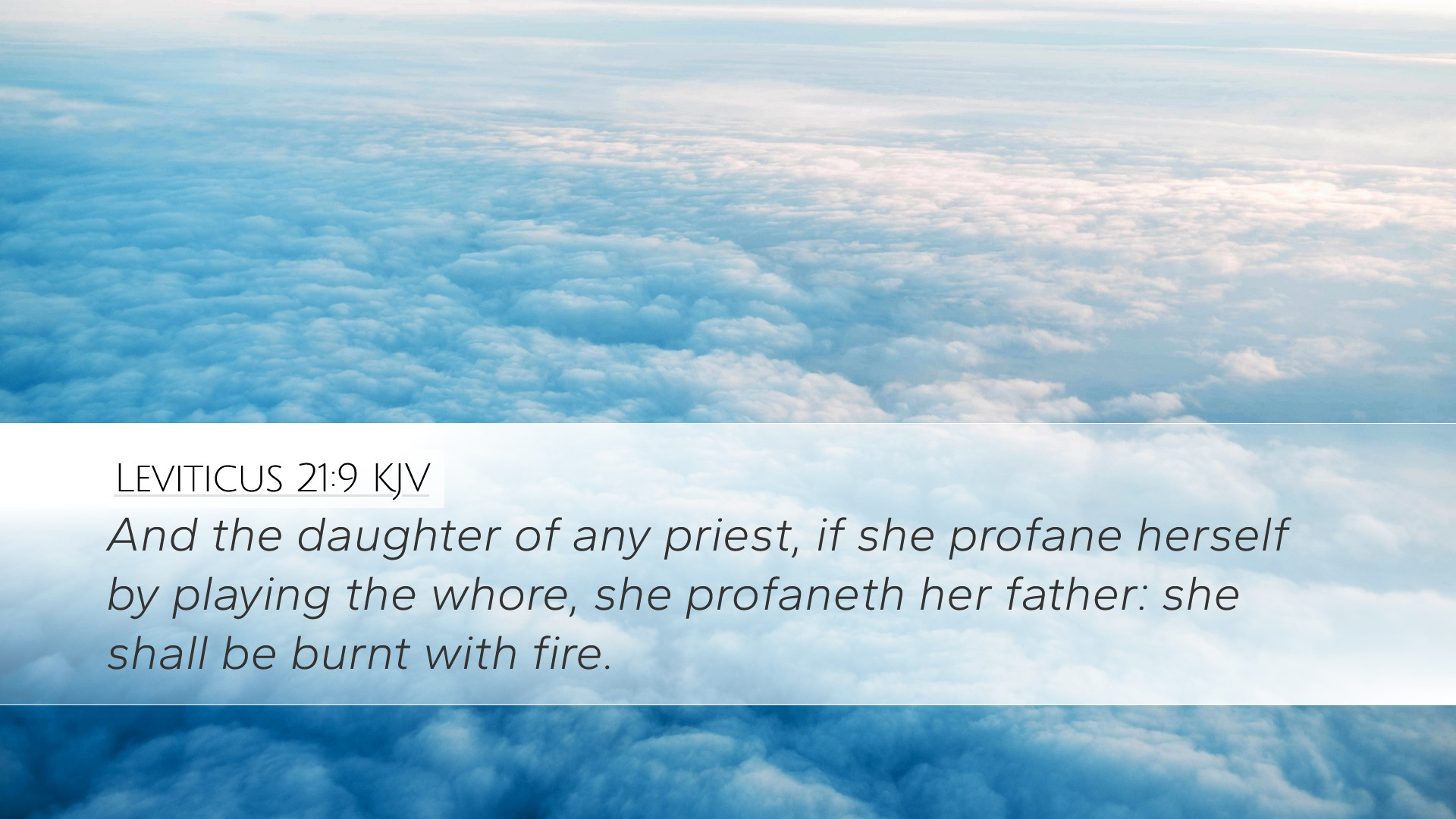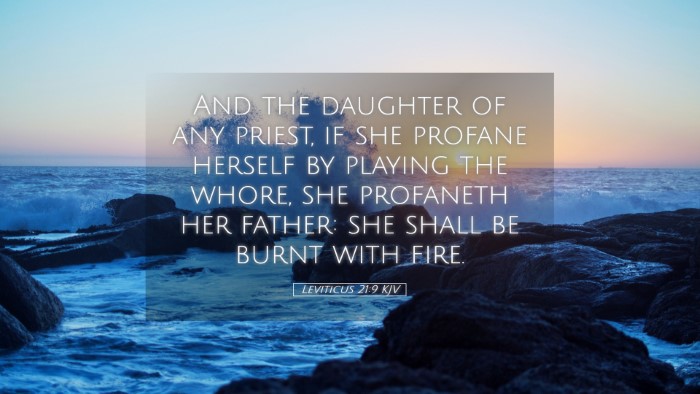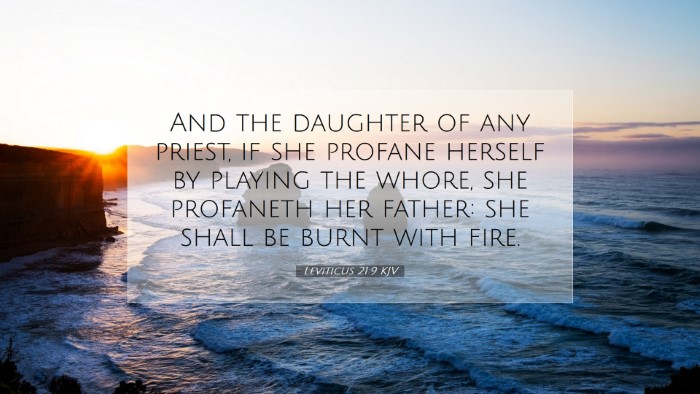Commentary on Leviticus 21:9
Leviticus 21:9 states: "And the daughter of any priest, if she profane herself by playing the whore, she profaneth her father: she shall be burnt with fire."
Introduction
This verse addresses the severe consequences for the daughter of a priest who engages in sexual immorality, reflecting the high standards of holiness required of priests and their families in ancient Israel. Such stringent measures highlight the significance of maintaining purity within the priestly lineage, as they were set apart for divine service.
Historical Context
The Levitical laws stem from God’s revelation to Moses, establishing guidelines for worship, purity, and community living among the Israelites. Within this framework, priests served essential roles, thus their families were held to elevated expectations. This emphasis on purity extended to their daughters, who were considered representatives of their father's holy office.
Theological Significance
The act of a priest's daughter becoming a harlot is portrayed not merely as personal sin but as a public disgrace that reflects upon her father's honor and God’s holiness.
Matthew Henry emphasizes that the priest’s household is to exemplify righteousness, and any deviation can lead to communal disfavor. In the eyes of society, the conduct of a priest's family directly relates to the integrity of the priesthood itself.
Insights from Commentaries
-
Matthew Henry:
Henry elucidates that the harsh punishment — being burned with fire — indicates the seriousness with which such actions are regarded. It serves both as a deterrent and a means of purging evil from among the people, emphasizing the holiness of God’s house and minister.
-
Albert Barnes:
Barnes interprets the verse by indicating that the severity of the punishment is not only reflective of her actions but also a protective measure for the community. It underscores the importance of maintaining moral standards among those in leadership, to prevent the proliferation of sin within the camp of Israel.
-
Adam Clarke:
Clarke comments on the cultural and social implications of such a penalty. The act of fornication was more than a personal failing; it jeopardized the purity expected of the priesthood. Clarke posits that this law serves as a significant reminder of the high calling of the priesthood, with expectations that extend to the family's moral conduct.
Moral and Ethical Lessons
This verse compels reflection on the moral responsibilities held by those in ministry. The notion that a minister's family is a reflection of their calling is prevalent throughout Scripture.
Church leaders today are reminded of the impacts of personal conduct on their ministry and the community. As observed by various commentators, the ethical standards for church leaders are accentuated, with an implication that their family's behavior can significantly influence their effectiveness and credibility.
Conclusion
In conclusion, Leviticus 21:9 serves as a profound reminder of the intricate relationship between holiness and leadership within the church. The implications of this verse extend beyond mere legalism; it invites deeper contemplation on the nature of accountability, the weight of influence, and the overarching holiness of God that is to be reflected in every aspect of believers’ lives, particularly those who are in positions of authority.
The historical, theological, and ethical dimensions observed through this commentary encourage pastors, students, theologians, and scholars to engage earnestly with the sacred texts, recognizing both the privileges and responsibilities that come with spiritual leadership.


